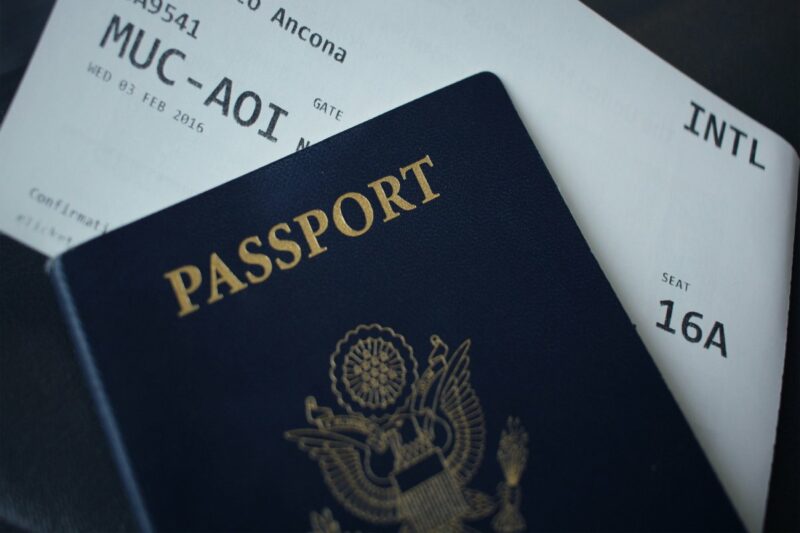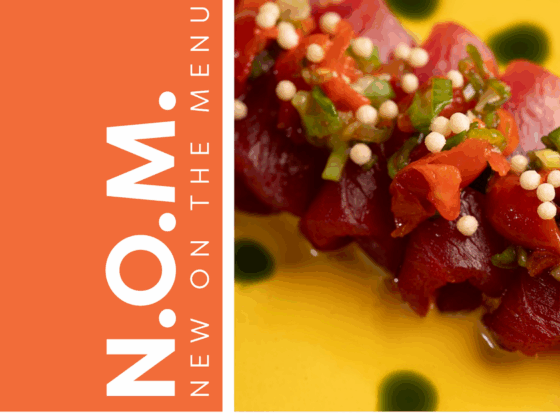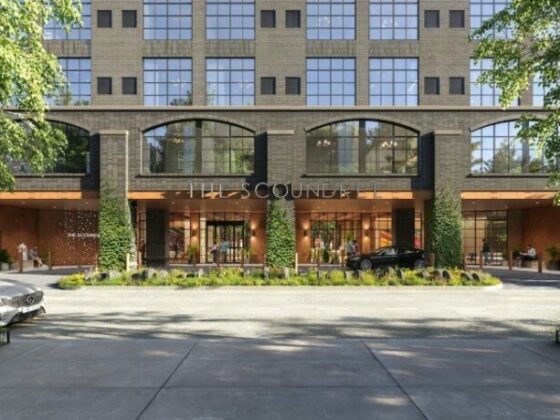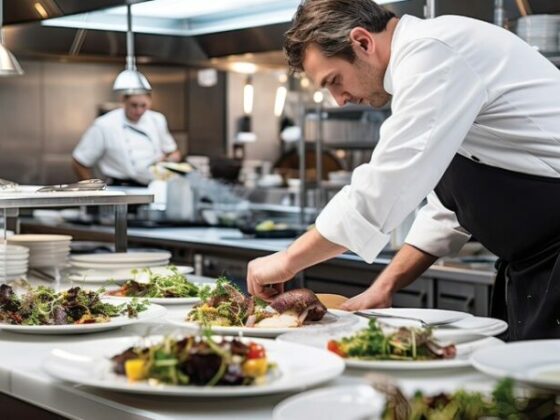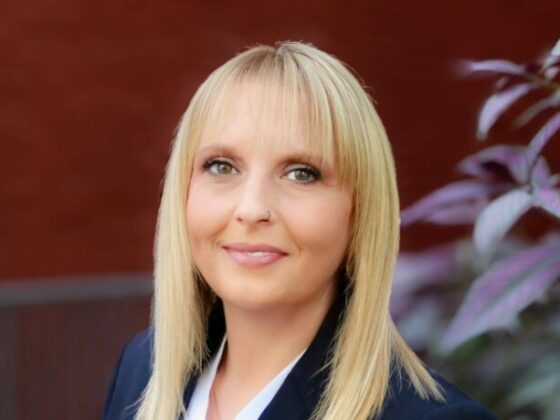Josiah: I wonder if you can share a little bit about how early in your life experiences with travel and hospitality shaped how you think about those things now because I read this fantastic Forbes article feature on you and your work and outlined, you know, why childhood travel is so important, how it makes you a better leader. But I’d love to hear in your words, you know, kind of some of your recollections around that and how you think it shaped how you think about hospitality and travel.
Sabrina: Yes, absolutely. Well, thank you. Thank you for that leading question. And indeed, you know, where to start about travel? And I think I would start by saying if you ask me where I’m from, I don’t have a single answer to that. I have a British mother and a French father. I grew up in Holland, studied in Paris, worked in the UK, and then around the world as a consultant and then traveled around the world for Club Med as a professional as well. So, indeed, travel is very embedded in my personal story. And also, you know, I’m a big believer in the transformative power of travel and how it shapes us as individuals, how travel shapes us also as professionals, but mainly as individuals. And I think my childhood story is about going to Club Med, which I then ended up working for. I’m pretty much of a poster child for Club Med. I grew up traveling to Club Med pretty much every year, either on beach vacations or on ski vacations, because Club Med also has all-inclusive ski resorts in the Alps and around the world. And I think it was a way for my parents probably to have me socialize a little bit, because I’m an only child, so be around other kids during vacation. And also, so what it did for me was really a lot of the things I learned, a lot of my passions were actually born through that travel. I learned to ski at Club Med and I learned my other passion, which is the flying trapeze at Club Med when I was very little. And that developed then into, yeah, into a true life passion and something I enjoy doing, and I enjoy teaching, and I’m a big believer, I think, flying trapeze should be an Olympic sport, to be honest, if you ask me. The multicultural aspect also of these travels and Club Med is a very international brand, so a lot of clients come together within the resorts, a lot of families, because it’s now a family brand from many different cultures and countries. That interaction is extremely powerful in shaping you as an individual and your open-mindedness, I would say.
Josiah: We might have to come back to trapeze, but I wonder if we could stay with this just a moment longer because travel obviously exposes us to different things, right? At any age, especially when you’re young, it opens up your mind and your world to really see what’s out there. But for the hospitality providers that are listening, it feels this is a really interesting opportunity because if you’re running a hotel or a resort, you have this physical property, you can have these amenities, you can have these activities, you can do these things. that are helping people try new things. And it sounds like that was your experience.
Sabrina: Yes, absolutely. And I think and that can happen in many different ways. That magic can happen in many different ways. And I think just going back to all-inclusive, you know, you tend to think that all-inclusive is sort of a bubble, right? And that you, you know, quite the opposite. You don’t have that interaction with the outside world and with the locality where you actually are. I disagree with that and that’s not my experience as a child and also as a marketer and as working with operations in the resorts. I really do believe that in any kind of hospitality configuration, you can do that. How can you do that? I think a lot of brands are offering very interesting takes on that challenge, many different spins on that. It can be through wellness, it can be through local art, but first and foremost, it’s through the people, right? Through the staff. The local staff are so instrumental in creating that local interaction, that local experience. And again, tying back with some of the secret sauce of Club Med, Club Med is a very, very people-focused and people-driven experience. And so I think they’re really good at fostering these kinds of interactions where you really get to know the people on site, that you really get to know them through sports activities, through restaurant service and through bar service and many different… Club Med is so good at creating those opportunities for interaction that you really take with you, friendships that you take with you, and also understanding of these different cultures in the countries you’re visiting.
Josiah: I would love to hear about your experience working there because my understanding is you not only were a guest as a little kid, but you loved it so much you wanted to work there. That was your dream is to work at Club Med. I’m very curious about what that experience is like because I visited Club Med Cancun a few times with my extended family. So everything from little kids to grandparents were there, just a lot of people. There’s a lot of us. So we had a fun time. It was great to experience that as a guest, but we also got to meet so many different team members at that property. And what stood out to me is how many of them spent a little bit of time working at different club and locations. It seems like they were getting this sort of global tour. And there was also, I don’t know if it’s unique to the Cancun property, but it seemed that sometimes they would spend part of their day as a waiter or in a restaurant or, you know, guest services. and then at night, they would be doing a show or a performance. So they had this kind of very interesting life. I don’t know how, is that kind of a typical all-inclusive or Club Med experience from your experience? What was it like to work there?
Sabrina: Yeah, 100%, that’s very typical. That is part, and I’m happy to learn that you drank the Kool-Aid because that is part of the Kool-Aid. Yeah, so first of all, the worldwide nature of Club Med, you know, 70 plus resorts worldwide, all over the world, in Asia, in China. in Europe, in the Americas, in North Africa. And what Club Med has been great at doing is getting that talent, you know, to circulate between the resorts and also getting them through doing that at the same time as doing that, getting them to climb up the ladder as well in different roles. So you’ll never find a general manager of a resort at Club Med who hasn’t been in an entry-level role, who hasn’t been either a barman or a a water ski instructor or a tennis instructor or a kids club host and they’ve just climbed the ladders to be department manager and then all the way to up to general manager and so it’s very enriching experiences and they’ve done that through traveling around the world to the different resorts in the different regions of the world. And I think one example I really like to talk about is in the restaurants as well, because yes, Club Med does buffets, but it’s not anything like the regular, you know, last market buffet you would imagine from some maybe, you know, mid-market resort brands. It’s really different stations with different specialties. And behind those stations actually doing the show cooking, it’s not cooked in the kitchen. It’s cooked right in front of the guests and sort of made to measure. You can switch out your ingredients, you can share your preferences, but it’s made by a chef who’s really literally come from Turkey, who came up through the resorts in Turkey and then he was named chef and suddenly he’s in the Dominican Republic. Your sushi chef is going to be literally from Japan or somewhere else in Asia, and you get to interact with them as well and that is absolutely, that is so cool and it’s so intrinsically part of, you’re not only traveling to one resort, you’re traveling around cultures just being in one resort. And yeah, that’s what I appreciated. And I appreciated as you know, working in a resort, I did enjoy those multiple hats you have to wear, because that is part of the build up in terms of that social web that you’re building within the resort for the guests. It’s really a truly convivial social experience going to Club Med, which I’m sure again, you experienced yourself.
Josiah: And I feel like the best hospitality is where it feels a little bit, I don’t know what the word is, but like a little bit more of a kind of an equal playing field where you’re having a good time, the staff’s having a good time, and it’s less, a little bit less of like somebody’s here to serve you. And it feels a little more relaxed and easy. And I felt that there. I’m curious for you because you go from being a guest for years to working there. What were your, do you recall some of the first things that you felt or what did it feel like to start working there?
Sabrina: It very energized, I mean, just, you know, crossing over to the other side. And for me, it was teaching the flying trapeze to kids and adults and performing in the shows. And that’s, you know, it’s a fantastic life experience. And it’s probably, you know, my best experience throughout my experience at Club Med, but, you know, I did it while I was in business school. And I knew that I was going to be a marketer and that I was going to work in the travel industry hopefully and hopefully even more at Club Med. And so it was kind of the first building block for me to really understand the operations side of things, really hear things firsthand from guests other than myself and my family. because there are different ways of experiencing the product as well. It was a building block towards then as a marketer, really understanding the clients, but also understanding what it is to be on the other side and delivering that experience and its complexities. I’m a big believer in having had these boots on the ground and really understanding what can be done and the potential that you have. When you have this stuff that Leite described is so passionate and it’s just loving what they do and thinking as a Larketer about where you can take that is extremely energizing.
Josiah: Well, I would like to talk more about the experience, but I just want to underscore what I’m hearing from you, and that is that all-inclusive hospitality businesses seem like this incredible accelerator for talent, right? Which is great if you’re beginning a career in hospitality. It’s great if you are midway through your career. It sounds like you have the opportunity to not only meet people from around the world who work in these different functions, but you got to do it yourself. So on a personal career level, it seems interesting. On a business level, it’s interesting. I feel like so many hospitality leaders I talk with struggle with talent development or providing opportunities to their teams. It seems that this all-inclusive model is an interesting accelerant for talent and hospitality. So I do love that.

